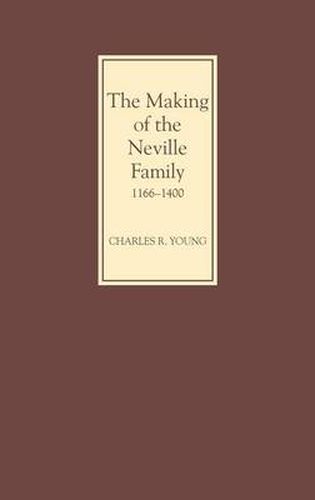Readings Newsletter
Become a Readings Member to make your shopping experience even easier.
Sign in or sign up for free!
You’re not far away from qualifying for FREE standard shipping within Australia
You’ve qualified for FREE standard shipping within Australia
The cart is loading…






(CLP’s original blurb) The story of the Neville family is a fascinating one. From their inconspicuous beginnings in Lincolnshire after the Norman Conquest, by the fourteenth century the Nevilles of Raby were among the most influential groups in the north of England, virtually ruling the area by means of the royal offices they held, and their political power reached its zenith in the fifteenth century with Richard de Neville, earl of Warwick, the so-called Kingmaker. This new study aims to answer the question of how a family of knightly status but with no special prominence was able to rise to such heights, tracing its growth and development through a careful examination of surviving documents; it also illustrates how the governance of medieval England worked with the cooperation of baronial families in a pragmatic manner, quite apart from any abstract legal or constitutional principles. CHARLES R. YOUNGis Professor Emeritus of History at Duke University.
$9.00 standard shipping within Australia
FREE standard shipping within Australia for orders over $100.00
Express & International shipping calculated at checkout
(CLP’s original blurb) The story of the Neville family is a fascinating one. From their inconspicuous beginnings in Lincolnshire after the Norman Conquest, by the fourteenth century the Nevilles of Raby were among the most influential groups in the north of England, virtually ruling the area by means of the royal offices they held, and their political power reached its zenith in the fifteenth century with Richard de Neville, earl of Warwick, the so-called Kingmaker. This new study aims to answer the question of how a family of knightly status but with no special prominence was able to rise to such heights, tracing its growth and development through a careful examination of surviving documents; it also illustrates how the governance of medieval England worked with the cooperation of baronial families in a pragmatic manner, quite apart from any abstract legal or constitutional principles. CHARLES R. YOUNGis Professor Emeritus of History at Duke University.